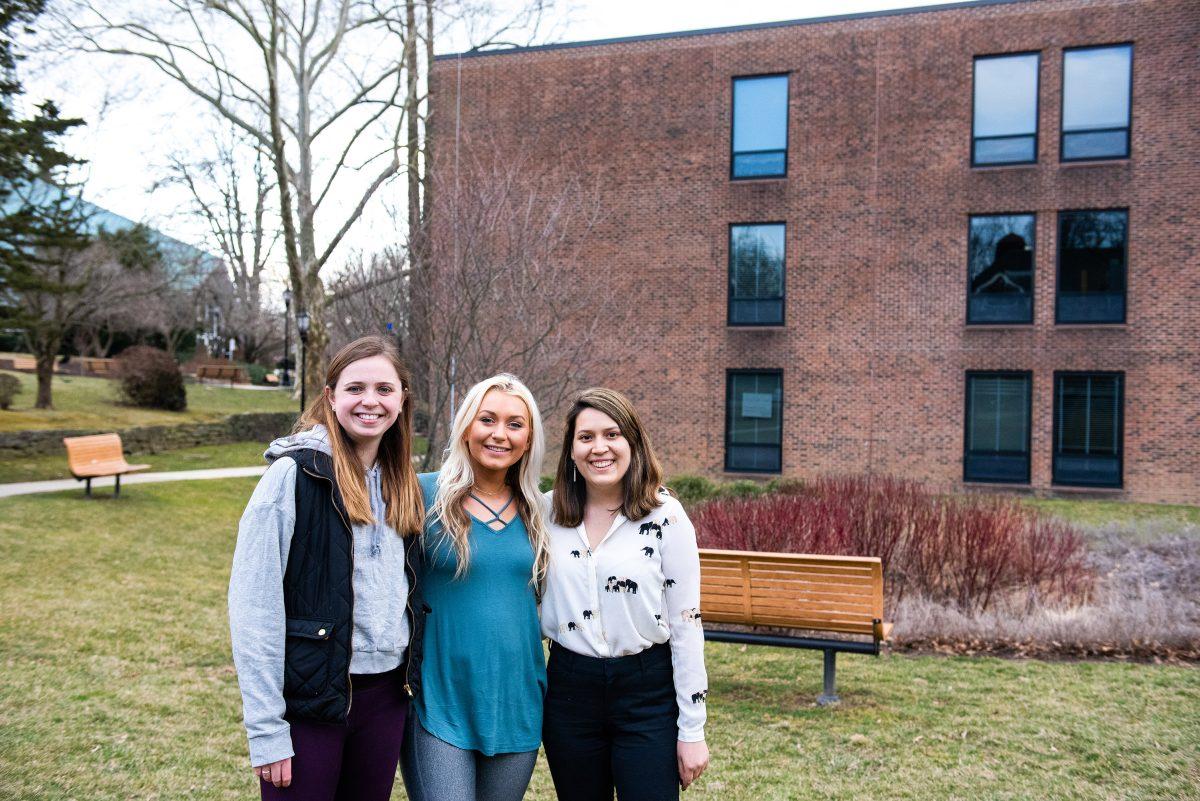Student-driven community garden to blossom
Planting and gardening activities for a student-driven community garden near Merion Hall and the Fine Arts East buildings are expected to begin at the end of April.
Three student organizers, Madison Cassel ’20, Karla Holmes ’20 and Olivia Connolly ’21, are working with Bill Wolff, Ph.D., assistant professor of communication studies and director of the community garden, to set up the garden as a space for the St. Joe’s community.
“The mission of this garden is to combine Jesuit ideals with the concepts of sustainability and nature,” Cassel said. “We envision this space being a place where students can go to reflect in and retreat to if they are stressed or just want a place to hang out.”
Holmes hopes the garden’s combination of Jesuit ideals and sustainability efforts will make it stand out on campus.
“We are donating all of the produce as well as making the garden a reflective space for the whole St. Joe’s community,” Holmes said. “We want this to be a place [where] faculty, staff and students all feel welcome.”
Cassel said the purpose of the space was to be whatever students needed.
“In keeping with the new goal of a student-driven garden, we really want this to be a useful and peaceful space for the SJU community,” Cassel said. “Whether they just want to relax or use it for service hours or host events in the garden, that is what the intention of this space is.”
Wolff said he sees the community garden as having several purposes including bringing people together to appreciate nature and com- munity and building meaningful and collaborative relationships with community partners.
“Since the produce from the garden will be donated to members of the local community, [it’s purpose is] to provide an opportunity for members of the SJU community to give back, to provide an intentional space where members of the SJU community can step away for a bit,” Wolff said.
An earlier iteration of the garden was started in 2013 and was located between Connelly and Parris halls. That year, over 150 pounds of produce grown in the garden was donated to Philabundance, according to a now inactive Twitter account, @SJUCommGarden.
A few years later, it moved to the area behind the Career Development Center.
“We are excited to build on past successes in a new location with a new mission-focused vision, which we hope will prove to be sustainable for many years to come,” Wolff said.
Elizabeth Becker, Ph.D., director of the behavioral neuroscience program, was involved in the community garden that started in 2013. She said the idea for that garden was conceived as a social place where individuals on campus could grow food and donate their harvest. However, the location of the garden was not ideal, according to Becker.
After the garden was moved to behind the Career Development Center and the Maguire Wolfington Welcome Center, the group ran into issues planting on that particular part of the land, Becker said.
“Unfortunately, the location that was chosen had been the site of a dumping ground or out building,” Becker said. “When we tilled up the soil, there were lots of bricks and other things.”
David Erfle ’19 and Tim Tabthong ’19 came up with the idea to restart the garden last year and created a group with the intent of starting a new garden that was student and volunteer driven, Cassel said.
“Since then, a group of students and Dr. Wolff from the communications department have worked together to make this idea a reality,” Cassel said. “We started with initial pro- posals to facilities, confirmed a new location for the garden and are now getting reading to start the actual planting/gardening process.”
Holmes said the garden will also be a space for educational events and other outdoor activities.
“Our educational events that we plan to hold on sustainability will have an impact on our community’s thinking, which in turn will hopefully bring about more sustainability efforts both on and around campus,” Holmes said.
Wolff said he hopes the initiative positively impacts the campus community.
“I hope that it has the impact of empowering students, building relationships and creating a space that members of the SJU community can use for reflection and other intentional and meaningful activities,” Wolff said. “I also hope it helps lead to a renewed focus on sustainability on campus.”















































